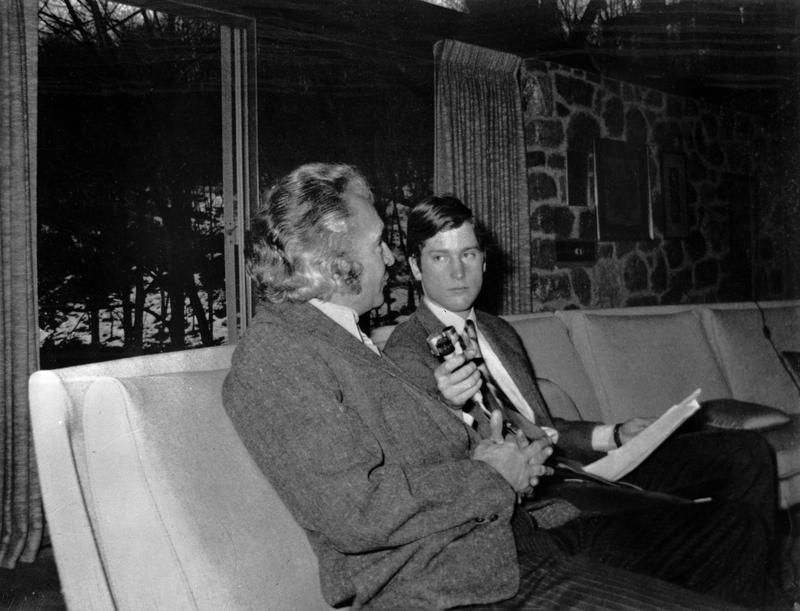
The Interview
Doug Cooper explores the improv life and jazz of Dave Brubeck, with Dave, at his home in Wilton, Connecticut.
Dave recalls a maternal hand in his earliest years learning the piano. By age 11, his father's admonition to take over the family's 1200-acre California ranch held sway. For many years, ranch life stayed in his mind a a standby vocation. In fact he still owned a ranch upon this session.
In 1972, the immense room in which we conducted this conversation starkly contrasted with his youthful era. The floors were eighty feet long and the ceiling was twenty feet high. This space was used as a recording studio, living room and dining room. A variety of curtains could be positioned to accommodate various bands. He had five pianos; one was in the kitchen.
There were tough years up to age thirty-five. When he left home, Brubeck lived in a "nasty" San Francisco basement, with a cement floor and a drain. No air, no window.
Called to Patton's Third Army, he lived in a pup tent in deep mud. They were on the front lines in Verdun, when a truck pulled up, with nurses looking for a piano player. "I always say that my Wolfpack Gang saved my life, because while I went off to play, my outfit got destroyed. They thought I was deceased."
From 1946-1950, his group played for starvation wages. They worked in bars you'd back out of. No one liked his original compositions.
"One night I discovered that we could take a familiar melody, say, Take Me Out to the Ballgame, and improvise on that, and the whole audience was hooked."
He had to raise a family, make a living. He found they could take a whole excursion on these familiar themes, using them as a point of departure. We never played a piece the same way twice. Last week we played at Carnegie Hall. "The innovation comes when you draw inspiration from the crowd; they lift us, even depress us."
Behind the Scenes
One evening I was home from college for the weekend. I inadvertently caught a terrific hour on PBS featuring Brubeck and his musician children.
I noted that he lived in Wilton, Conn, about 35 miles. It was 8 PM. I looked up his street address in a "celebrity register" I prized. Then I got a number and dialed.
The answer was in that soft-spoken voice this interview captures. He said that this was the kids' phone, never revealing himself, and I believe it was his casual air and humility speaking. I asked for Dave Brubeck, and he said, yes, that's me.
I never said a word about the just-ended “biography." I sensed he didn't need a pitch using names of recent guests or total audience. I did, however, employ the "you name the time and day" offer, because it's a starting point. A little like improv: we met ten days later.
__________________________________________________________________________
The Douglas P. Cooper Distinguished Contemporaries Collection (1967-1974) contains rare interviews with influential writers, statesmen, artists, songwriters, journalists and others who have left their mark on our culture.
The Origins of The Cooper Collection
